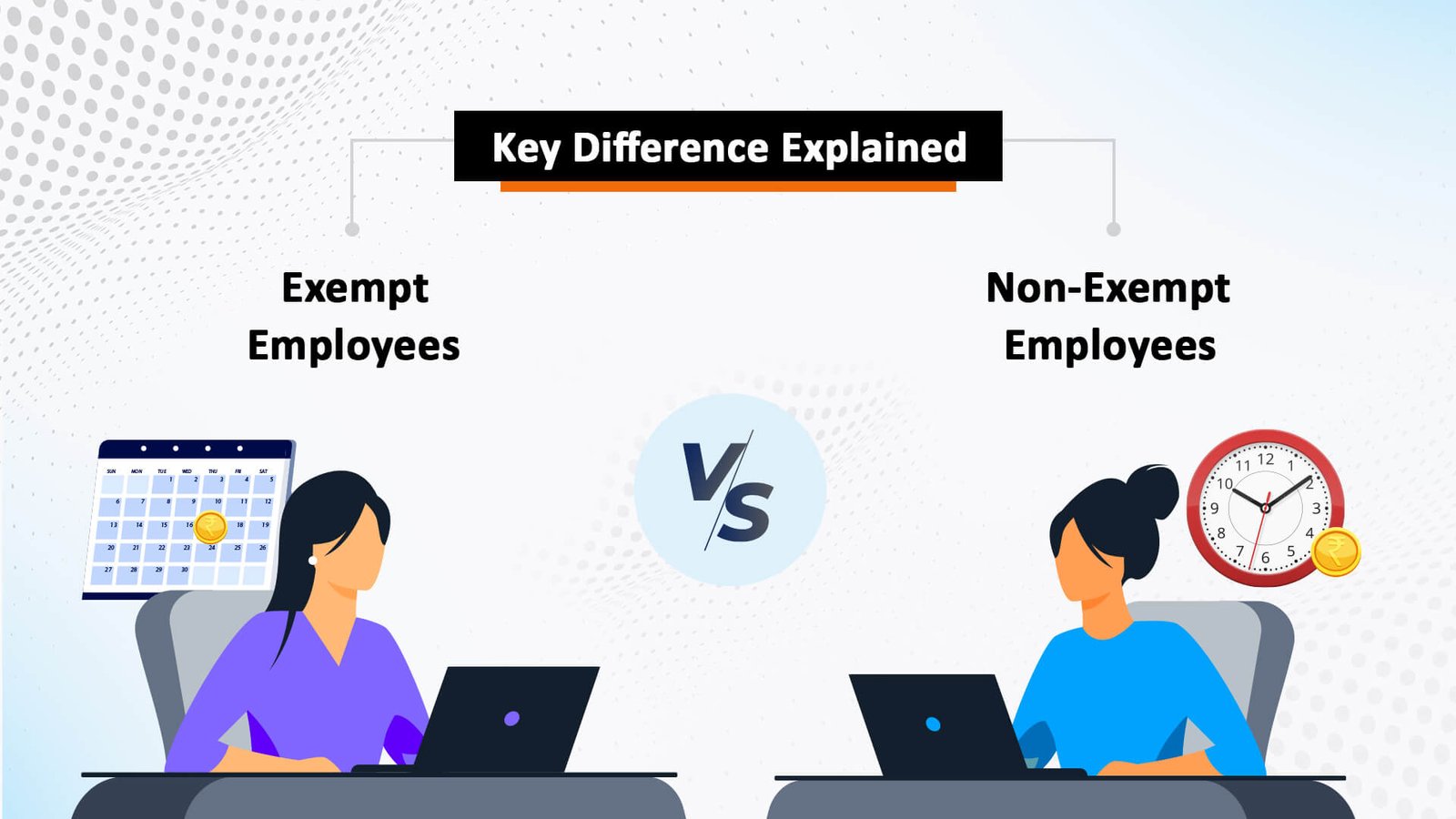Florida is located in the southeasternmost corner of the U.S. state with the Atlantic Ocean on one side and the Gulf of Mexico on the other side. It has hundreds of miles of beaches closer to it.
Employment laws are essential to employers and employees alike. They protect employees from an unsafe working environment and offer guidelines to employers as they handle the payment process & termination.
Hiring in Florida includes observing various employment laws. From minimum wage to standards that the FLSA sets, understanding these laws is vital for maintaining HR compliance.
Employers should understand and comply with the Federal and Florida Labor Laws in order to avoid legal issues and fines. In this guide, we have covered everything Florida & its labor laws, which you will need to know while hiring in Florida.
What are Florida Labor Laws?
Florida labor laws are in charge of the relationship between the employers and employees, surrounding wage standards, workplace safety, and employee rights. These laws include provisions for minimum wage, overtime pay, meal breaks, and protection against discrimination.
Primary Florida Laws & Practices
Typical Working Hours
Florida follows a federal regulations in regard to working hours without any state specific laws defining full or part time work. Mostly, considered full-time employment which ranges between 35-40 hours per week, though it might vary based on the employer’s choice.
Florida statute states that full-time employment is defined as an employee who has a normal workweek of 25 hours or more. Businesses provide full-time employees with benefits such as paid time off and retirement plans.
Independent contractors and gig workers do not have the same protections as full-time employees in Florida. They do not have various rights such as a claim to minimum wage, overtime pay, and some of the anti-discrimination protections.
Employment Labor Law V/S Florida Labor Laws
The typical method is to use employment law and labor law identically, but do you know there is a legal difference between these two terms? Employment law is used to describe issues that concern the relationship between an employer and an individual. In contrast, Florida labor law is defined to apply between an employer and a group of individuals.
Minimum Wage & Overtime
Florida’s minimum wage and overtime regulations are designed to ensure that fair compensation is there for full-time employees. The Florida Minimum Wage Act shows a minimum wage of $14.00 per hour for non-exempt employees, which is higher than the federally mandated minimum wage rate.
Overtime is governed by the FLSA rules that state non-exempt employees receive an overtime pay rate of 1.5 times the regular pay rate for hours worked more than 40 hours in a week. Exempt employees are those earning more than $684 per week in Florida and working in administrative, professional, and outside sales positions.
Insurance and Benefits
In comparison with the federal laws, Florida employers must provide various benefits to their eligible employees, like social security and unemployment benefits. Though state laws do not require giving health insurance, most full-time employment contracts include health insurance benefits.
Employers are required to provide workers’ compensation insurance for their employees. The Health Insurance Coverage Continuation Act allows qualified employees to continue their coverage up to 18 months with a maximum premium of 115% of the related group rate.
| Benefits | Provider | Eligibility |
| Social Security | Federal government | For all the employees |
| Unemployment | State government | Employees who have lost their jobs not because of their fault |
| Worker’s Compensation | Employer | All employees |
| Family and Medical Leave | Federal government | Employers who have worked for an employer for at least 12 months and at least 1,250 hours during the last 12 months |
| Health Insurance | Employer | Decided by the employer and is for full-time employees |
Pay Transparency
Pay Transparency is a trending topic in the U.S.. Many states are passing this law, which will require employers to be more aware of the salary ranges at their firms. In addition to this, generating trust between employers and employees, pay transparency laws serve as a vital function in preventing wage differences which is based on factors such as gender, race, and age. So, the state of Florida has not passed any transparency laws.
Meal and Break Period
Florida employers are not legally qualified to offer employees rest or meal breaks. The execution is that Florida labor laws for minors under 18 years of age who are qualified for a 30-minute break after working for more than four consecutive hours.
Even though not legally required, it is a common practice amongst Florida employers to provide workers a 15-minute rest break and an unpaid meal break during an eight-hour shift.
Employers should adhere to federal guidelines set by the Fair Labor Standards Act (FLSA), which do not state breaks, but can be set by an employer who chooses to provide a break of 20 minutes or less should be paid. Meal periods of 30 minutes are not required to be paid, so long as the employee is relieved of their duties.
Anti-Discrimination Laws
Florida employment laws are tighter when it comes to discrimination in the workplace. The Florida Civil Rights Act forbids discrimination based on color, race, sex, national origin, age, or marital status by employers with a staff of 15 employees. Florida extends protection against discrimination to individuals who have HIV or AIDS.
In these laws, employers cannot differentiate in any section of employment, including hiring, firing, pay, job assignments, training, and benefits. Any kind of violation of these types can lead to severe penalties, which include compensatory damages and reimbursement of attorney fees for the party.
Leave Policies
| Type | Duration | Compensation |
| Domestic Violence | 3 days | Unpaid |
| Jury Futy | 1 day | Unpaid |
| Witness Leave | Duration of court proceeding | Unpaid |
| Military Leave | Duration of active duties | Unpaid |
| Civil Air Patrol Leave | Up to 15 days a year | Unpaid |
Leave of Absence
At times, people need to take leave of absence from the workplace to take care of their sick family members or navigate a serious health condition. When this happens, federal & state leave laws make sure that their jobs are protected until they are back to work.
However, Florida employers should follow the regulations set forth by the federal Family and Medical Leave Act (FMLA); the state has no additional laws that require employers to offer paid leave.
Taxes in Florida
Florida does not have state-level income taxes, which eases out payroll processing for employers. However, employers are solely responsible for federal payroll taxes, including Federal Income Tax, Social Security Tax, and Medicare Tax.
| Type of Tax | Tax Rate |
| Federal income tax | 10% |
| State income tax | N/A |
| SDI tax | 0.1% |
| State unemployment tax | 0.1% |
| Federal unemployment tax | 1.5% |
| Social Security | 6.2% |
| Medicare | 1.45% |
Florida Employees Should Use a Free Payroll Stub Generator
If you’re an employee and you’re facing challenges in calculating your taxes or managing your finances effectively, you can rely on our tool to organize your work.
If you’re using any expensive tool that is proving costly to you, then you can use Stubcreator’s free paystub generator, which provides you with accurate Florida payroll calculation information.
You can use the above information about Florida labor laws 2025 to update your business.
Curious Minds Also Ask
1- What are the employment laws in Florida?
Florida employment laws cover several aspects of the employer-employee relationship which includes at-will employment, discrimination, overtime, and workplace safety.
2- What is the 7-minute rule in Florida?
The 7-minute rule in Florida is related to timekeeping and payroll, which is a technique of rounding employee time that revolves around the nearest to 15 minutes.
3- What is illegal for employers to do in Florida?
In Florida, it is illegal for employers to discriminate against employees based on several protected characteristics, which include race, color, religion, national origin, age, and marital status.
4- Are there labor laws for salaried employees in Florida?
Yes, there are labor laws in Florida for salaried employees, namely the Fair Labor Standards Act (FLSA), which governs wage and hour laws, including overtime pay.
5- Is there a 4-hour minimum shift in Florida?
No, Florida does not have a 4-hour minimum wage shift. Some states have laws that require employers to pay for a minimum number of hours even if the employee is sent home early.
6- What is the 3-day law in Florida?
The 3-day law in Florida is defined as a cooling-off time that allows consumers to cancel various contracts within the three business days of signing the contract, mainly for home purchase sales and contracts for future services.
7- What is legally full-time in Florida?
Most employers in Florida consider 35-40 hours per week as full-time, especially when it comes to benefits eligibility.
8- What is the 120-day rule in Florida?
The 120-day rule in Florida refers to two different areas of law: workers’ compensation & civil procedure. Workers’ compensation is defined by how long an employer has to investigate and accept or deny a claim. Civil procedure is defined as the time limit for serving a complaint on a defendant.
9- What is the minimum wage in Florida?
The current minimum wage in Florida in 2025 is $13.00 per hour.
10- Does Florida require lunch breaks?
No, Florida does not require employees to take lunch breaks.
11- Is overtime pay mandatory in Florida?
Yes, overtime pay is mandatory in Florida, especially for non-exempt employees under the Fair Labor Standards Act (FLSA).
12- What are the payroll laws for Florida?
Florida-based employers should comply with the Fair Labor Standards Act (FLSA) requirement which is nonexempt employees receives 1.5 times than their normal pay rate when working for over 40 hours a week.
13- What is the new salary law in Florida 2025?
In 2025, Florida’s minimum wage is to rise to $14 per hour for non-tipped employees & $10.98 per hour for tipped employees. This step is a rise towards the state’s goal of reaching $15 per hour minimum wage by 2026.
14- Can you work 7 days a week in Florida?
Yes, Florida, it is legal to work 7 days a week. There are no state or federal laws that forbid employees from working seven days.
15- Can I get unemployment if I’m fired in Florida?
In Florida, whether you can receive unemployment benefits after being fired depends on the reason for your termination. In case you were fired for misconduct at work, you might not be qualified.
16- What is the final pay law in Florida?
Florida employers usually follow the federal guidelines stated in the Federal Labor Standards Act (FLSA). The final paycheck is due on the next regular payday following the employee’s last day of work.
17- Can I record my boss firing me in Florida?
No, it is illegal to secretly record any type of conversation with your boss in Florida, including when they are firing you, because Florida is a two-party state.
18- What is Florida’s red law?
Florida’s red law, also known as Risk Protection Orders (RPOs), allows law enforcement to petition a court to temporarily restrict an individual’s access to firearms if they are considered a danger to themselves or other persons.
19- What is the 3-second rule in Florida?
The 3-second rule in Florida is defined as a safe following distance that the driver should maintain in order to avoid rear-end collisions.
20- Is overtime legal in Florida?
Yes, overtime is legal in Florida, and employers should pay non-exempt employees at a rate of 1.5 times their regular hourly rate worked over 40 hours in a workweek.
21- Is it legal to work 8 hours without a lunch in Florida?
In Florida, no state law requires employers to provide a meal or rest breaks for employees aged gap of 18 years or older. The federal Fair Labor Standards Act (FLSA) does not mandate meal or rest breaks.
FAQ's
What is the minimum wage in Florida for 2025?
+
In 2025, Florida’s minimum wage is scheduled to increase as part of the gradual raise to $15/hour by 2026. Check the latest state updates for exact rates.
Are Florida employers required to provide paid sick leave in 2025?
+
Florida does not mandate paid sick leave statewide, but employers must comply with local ordinances and federal laws where applicable.
Is overtime pay required under Florida labor laws?
+
Yes, under federal FLSA regulations (which Florida follows), non-exempt employees must receive overtime pay for hours worked over 40 in a week.
Are breaks and meal periods required for workers in Florida in 2025?
+
Florida law does not require meal or rest breaks for adult workers, but minors must receive breaks based on age and hours worked.





